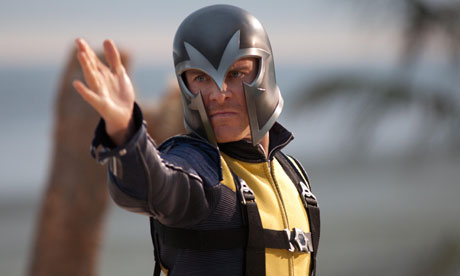Dr. Lecter.
For some utterly unknown reasons, I have never really been that eager to watch this film despite of the fact that it has Hannibal Lecter in it (and we all know how magnetic the murderous bastard is). With Ridley Scott's "Hannibal" merely teetering between mediocrity and good in terms of quality, seeing "Red Dragon" has never been a recurring priority for yours truly mainly because I have locked myself up with the fact that "The Silence of the Lambs" is more than enough for me. But now that I have seen "Red Dragon" in its entirety (I've tried to see it once before; the damn DVD copy stopped halfway through the beginning), I can now safely say that I was very, very wrong by not seeing it any sooner.
Not only has it recaptured the psychological complexity of "The Silence of the Lambs", it has also channeled the darkly rhythmic feel of a well-made '80s thriller. Oh, and did I mention that "Red Dragon" has a heavyweight cast? With prime actors Edward Norton, Ralph Fiennes and Anthony Hopkins leading the way (with Harvey Keitel, Philip Seymour Hoffman and Emily Watson on the side), do you really expect this film to fail? Well, if the script is weak, it surely will, but screenwriter Ted Tally has adapted Thomas Harris' novel of the same name with narrative patience and an otherworldly sense of dread (aided by Danny Elfman's escalating musical score) that it has made the film both frightening and mesmerizing. But surprisingly, the spine-tingling sensation that I have felt while watching the film is not because of Hopkins' Hannibal Lecter but because of Ralph Fiennes' part-sympathetic, part-monstrous turn as the 'Tooth Fairy' killer.
It has always been argued that although Hannibal Lecter is the spine of the franchise and is, bar none, one of the most nightmarishly intimidating characters in film history, the plot-demanded 'other' killers are the ones that often steal the show. And by 'other' killers, I mean "The Silence of the Lambs'" Buffalo Bill (played by Ted Levine), "Hannibal's" Mason Verger (played by Gary Oldman) and now, "Red Dragon's" 'Tooth Fairy' killer.
Of course, this perspective about the whole franchise has always been 'relative' and 'arguable', but in this film, I personally think that Ralph Fiennes has truly outshined Mr. Hopkins partly due to the fact that, at this point, we just know Hannibal Lecter too well. Though he is unpredictable, the danger that Lecter imposes to the audience is now, for a lack of a better term, all too cinematic. On the other hand, the way Fiennes' 'Tooth Fairy' unfolds and takes command of the screen is way more psychologically unsettling because it is insanity at its rawest and lowest form; personally, I find him to be more fascinating and disturbing because he can be as real as the next fellow. The likes of John Wayne Gacy can attest to that.
I also liked the fact that 'Tooth Fairy's' M.O. is kept as ambiguous as possible and was made even more bizarre by some far-fetched mythological hints (the killer's symbolic association with a 'dragon' based on a William Blake painting) that further his preposterous delusions. This madness is, of course, carried out very well by Fiennes through his limiting facial expressions that suggest internal suppression. Here is a killer who knows the consequences of his murderous deeds yet cannot stop from doing them because of some misplaced sense of grandiosity (with him thinking that he is a 'dragon' incarnate) and superficial self-importance.
On the other side of the spectrum, there's Will Graham (Edward Norton), a retired FBI agent who has been called back to duty (Aren't they all?) because of the 'Tooth Fairy' killings. He is also the one responsible for capturing Hannibal Lecter years before. A gifted forensic man, Graham sees projections not commonly seen by the ordinary eye yet repels the idea that he is special, which makes him the perfect counterpoint to Lecter's intellectual vanity. Unlike the complex relationship between Lecter and Clarice Starling (Jodie Foster in "The Silence of the Lambs", Julianne Moore in "Hannibal") in the previous films, Will Graham's affiliation with Dr. Lecter is more simplified to the point that their relationship seems to be dictated by the plot and not by their characters' respective personalities.
All in all, I have to commend Brett Ratner in how he has surprised yours truly (and maybe everyone else) by successfully pulling off a complex psychological thriller. From a man whose most famous films include the "Rush Hour" trilogy and "X-Men: The Last Stand", Ratner has achieved to surprise us with the relative intricacy of "Red Dragon". Although it is not necessarily a great film, it is a highly enjoyable and intriguing one. And realizing that this is a prequel to one of the only three films that have won every major Academy Award back in 1991, this was a tall task that was took on with enough focus, style and unflinching psychological mystery. Let's have some Chianti, shall we?
FINAL RATING







